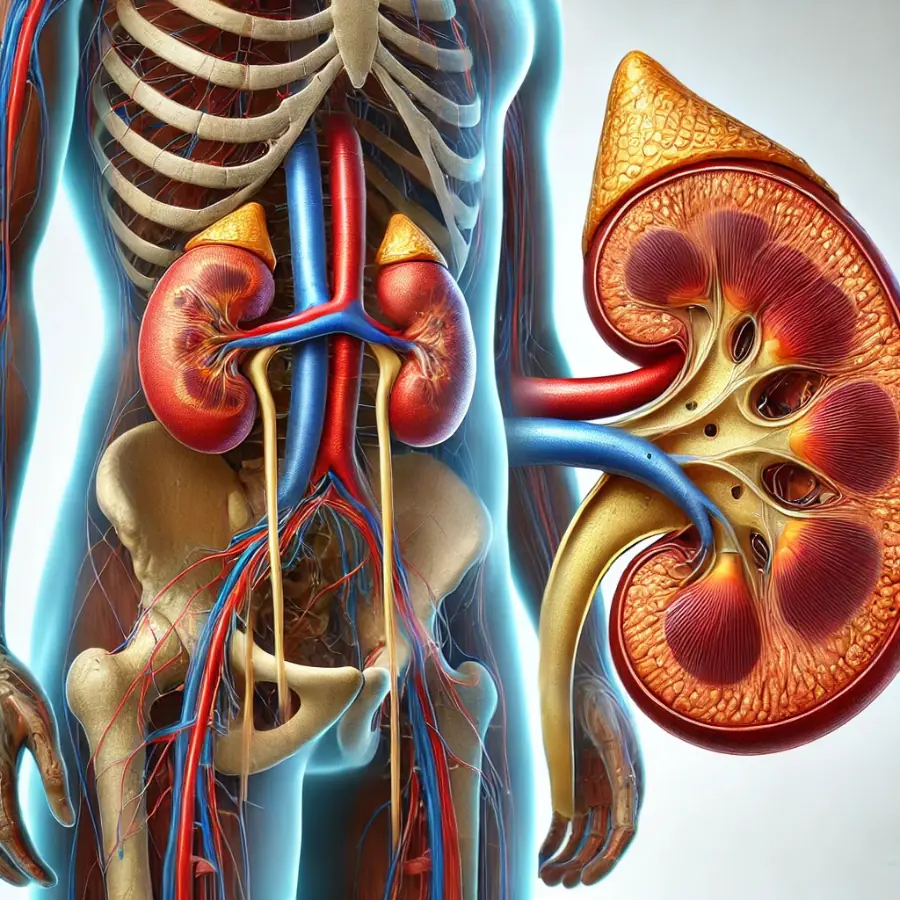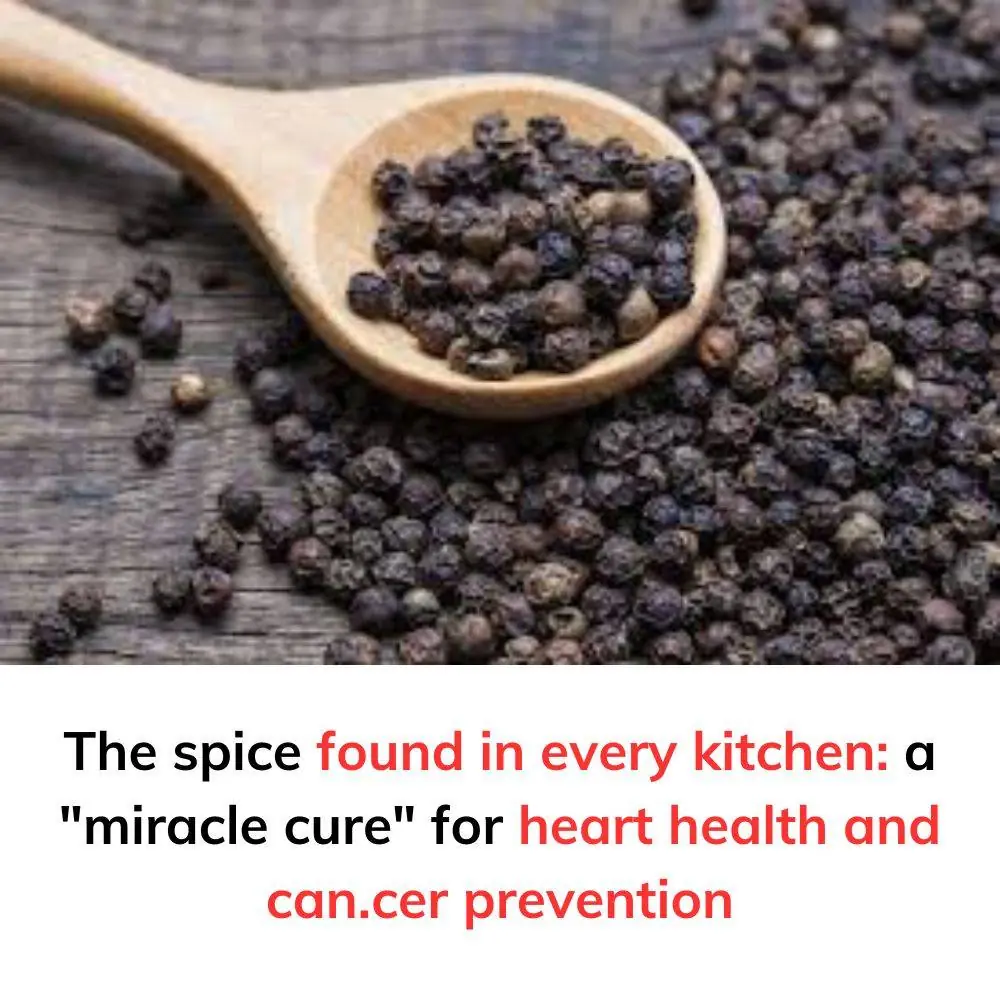
The Spice Found in Every Kitchen
The Spice Found in Every Kitchen: A "Miracle Cure" for Heart Health and Cancer Prevention
What is black pepper?
Black pepper, a common spice present in almost every kitchen, has long been revered not just for its culinary uses but also for its medicinal benefits. Historically, it has been utilized in traditional medicine, and modern science has now confirmed its incredible effects on human health.
Powerful Antioxidant Properties
Black pepper, especially black peppercorns, is rich in antioxidants that protect cells from damage caused by free radicals. This helps to prevent aging and chronic diseases. Piperine, the active compound in black pepper, neutralizes free radicals, reduces oxidative stress, boosts immunity, and protects the body from harmful agents. It may even lower the risk of chronic illnesses like cancer, heart disease, and diabetes.
Pain Relief and Anti-inflammatory Benefits
Piperine is a natural pain reliever and anti-inflammatory agent, functioning similarly to NSAID medications (like ibuprofen or aspirin) but with fewer side effects. It works by inhibiting inflammatory cytokines such as TNF-alpha and IL-6.
Using black pepper can help reduce joint pain and swelling, improve mobility, alleviate headaches and migraines, soothe toothaches and gum inflammation, and relieve muscle soreness after intense activity.
Enhances Respiratory Health
Black pepper has been used in traditional medicine for centuries to support respiratory health. Its antibacterial properties combat respiratory infections, alleviating symptoms of colds, coughs, and bronchitis.
Its anti-inflammatory properties reduce inflammation in the respiratory tract, making it especially beneficial for those with asthma or chronic respiratory conditions. Additionally, it helps loosen mucus and phlegm, making breathing easier and improving overall lung function.
Cancer Prevention
Studies suggest that piperine in black pepper can inhibit the growth and spread of certain cancer cells, including those of breast, prostate, colon, and lung cancer. It has also been shown to enhance the efficacy of some chemotherapy drugs. Incorporating black pepper into your daily diet, alongside a healthy lifestyle, may contribute to cancer prevention.
Supports Heart Health
Piperine helps reduce levels of LDL (bad cholesterol) and triglycerides while increasing HDL (good cholesterol). This prevents plaque buildup in arteries, reducing the risk of atherosclerosis and other cardiovascular diseases.
The antioxidants in black pepper protect blood vessels from damage caused by free radicals, a major contributor to heart disease. Piperine may also help lower blood pressure, particularly in individuals with hypertension, reducing the risk of heart-related conditions.
Boosts Brain Function
Piperine protects brain cells from damage caused by free radicals while enhancing the absorption of essential nutrients for brain health. It improves memory and learning capacity by boosting neurotransmitter activity in the brain.
Black pepper also promotes better blood circulation to the brain, ensuring an adequate supply of oxygen and nutrients. Its anti-inflammatory properties may help prevent neurodegenerative diseases like Alzheimer’s and Parkinson’s. Additionally, it can reduce stress, anxiety, and depression, further supporting optimal brain function.
Conclusion
More than just a spice, black pepper is a powerhouse of health benefits, from supporting heart health and respiratory function to preventing cancer and boosting brain power. Adding black pepper to your meals not only enhances flavor but also provides a natural way to safeguard your health.
News in the same category


Drinking coffee at this time of day may reduce the risk of de.ath

6 signs on the skin warn of diabetes, absolutely do not ignore

Simple signs to immediately recognize leukemia that you may never notice

6 warning signs of early stage stomach c.a.ncer, need to pay attention

Save these familiar and cheap fruits that cool the li.ver and detoxify effectively

Every morning when you wake up, you will see these 5 signs, proving that your kidneys are completely healthy

If your t.o.ngue is yellow, be careful with these 5 diseases

The power of medicine from Radish is good for bones and joints

5 medicinal herbs in the kitchen and garden that everyone has, effective in treating back pain

Ginger is good for health but people with these 6 diseases should not eat it

Everyone is afraid of ca.nc.er, but ca.nc.er is "extremely afraid" of these 4 foods

Be careful when eating these vegetables

This Affordable "Vegetable" Has More Protein Than Beef

Do Sandworms Truly Boost Vitality?

3 Types of People Who Should Avoid Eating Balut

3 Animal Parts Often Labeled as "Toxic" but Rich in Nutrients and Beneficial for Health

Bean Sprouts Are Not for Everyone

Pay attention to your health
News Post

12 Bad Habits That Damage Your K.i.d.neys – Are You Guilty of These?

Drinking coffee at this time of day may reduce the risk of de.ath

6 signs on the skin warn of diabetes, absolutely do not ignore

Simple signs to immediately recognize leukemia that you may never notice

6 warning signs of early stage stomach c.a.ncer, need to pay attention

Save these familiar and cheap fruits that cool the li.ver and detoxify effectively

Every morning when you wake up, you will see these 5 signs, proving that your kidneys are completely healthy

If your t.o.ngue is yellow, be careful with these 5 diseases

The power of medicine from Radish is good for bones and joints

5 medicinal herbs in the kitchen and garden that everyone has, effective in treating back pain

5 other uses, it's a waste if you don't know

Ginger is good for health but people with these 6 diseases should not eat it

6 simple steps to wash shoes in the washing machine clean

Everyone is afraid of ca.nc.er, but ca.nc.er is "extremely afraid" of these 4 foods

Keeping these 4 things on your bedside table can easily cause insomnia and hair loss

When boiling chicken, should it be placed face down or upside down

How to dry clothes quickly and keep them fragrant on cold, rainy days

Be careful when eating these vegetables

If you hear the sounds of these animals in your house, you should be careful

